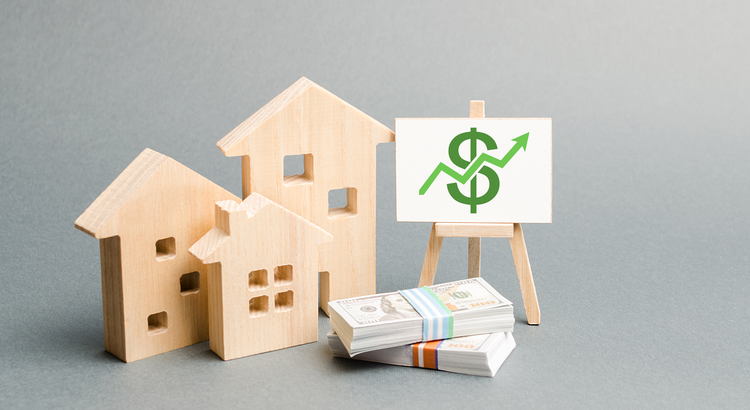When it comes to selling your home, setting the right price is crucial. Unfortunately, one of the most common mistakes sellers make is overpricing their house. While it might seem like a good strategy to start high and leave room for negotiation, this approach can actually backfire, costing you time, money, and potential buyers.
In today’s competitive real estate market, pricing your home correctly from the start is more important than ever. Here’s why overpricing is a mistake and how to avoid it.
The Risks of Overpricing Your Home
Overpricing your home can lead to several negative consequences that can ultimately hurt your chances of a successful sale. Here are the key risks:
1. Longer Time on the Market
Homes that are overpriced tend to linger on the market longer than competitively priced homes. When a property sits unsold for an extended period, it can create the perception that something is wrong with the home, even if it’s in perfect condition. Buyers often wonder why no one else has purchased the home and may assume there are hidden issues.
As a result, your home can become “stale,” making it even more challenging to sell without significant price reductions.
2. Fewer Showings and Offers
Buyers today are more informed than ever, thanks to easy access to online real estate listings and market data. They can quickly identify when a home is overpriced compared to similar properties in the area. If your home is priced too high, it may not even appear in search results for buyers who are looking within their budget.
Fewer showings often lead to fewer offers, and the offers you do receive may be well below your asking price, putting you in a weaker negotiating position.
3. Helping Your Competition
Overpricing your home can inadvertently benefit your competition. When buyers compare your home to similar, more reasonably priced homes, the other homes will likely appear to be a better deal. This can drive buyers to make offers on other properties while your home remains unsold.
4. Price Reductions and the “Chasing the Market” Phenomenon
If your home doesn’t sell quickly, you may feel pressured to reduce the price. However, repeated price reductions can signal desperation to buyers and weaken your negotiating power. This is known as “chasing the market”—continually lowering your price to catch up with market conditions, often resulting in a final sale price lower than what you could have achieved if you had priced it correctly from the start.
Why Sellers Overprice Their Homes
Understanding why sellers overprice their homes can help you avoid this common mistake. Here are a few reasons why overpricing happens:
- Emotional Attachment: Sellers often have an emotional attachment to their home, which can cloud their judgment about its true market value. It’s natural to believe that your home is worth more because of the memories and personal value it holds, but buyers won’t share the same emotional connection.
- Expecting to Negotiate: Some sellers intentionally overprice their home with the expectation that buyers will negotiate. While negotiation is common in real estate transactions, starting with a price that’s too high can discourage buyers from even making an offer.
- Market Misconceptions: Sellers may have misconceptions about the local real estate market, believing that home prices are higher than they actually are. Relying on outdated or incorrect information can lead to overpricing.
- Overestimating Upgrades and Renovations: While home improvements can add value, sellers often overestimate how much they will increase their home’s market value. Not all upgrades yield a high return on investment, and buyers may not value the improvements as much as the seller does.
How to Price Your Home Right
The key to avoiding the pitfalls of overpricing is to set a competitive and realistic price from the beginning. Here’s how to do it:
1. Work With a Knowledgeable Real Estate Agent
A skilled real estate agent with local market expertise is your best resource for pricing your home accurately. They can conduct a Comparative Market Analysis (CMA) to determine the value of your home based on recent sales of similar properties in your area. This analysis considers factors such as location, size, condition, and amenities.
2. Understand the Market
Educate yourself about the current real estate market conditions in your area. Are homes selling quickly, or is the market slowing down? Are prices rising or stabilizing? Understanding these trends can help you set a price that reflects the realities of the market.
3. Be Objective
Try to view your home as a product rather than a personal space. Detaching yourself emotionally from the property can help you make more objective decisions about pricing.
4. Consider the Buyer’s Perspective
Put yourself in the buyer’s shoes. What would you be willing to pay for a home like yours? Look at comparable homes for sale in your area and consider how your home stacks up in terms of features, condition, and price.
5. Price Strategically
Setting the right price doesn’t necessarily mean choosing the lowest price. A strategic price is one that attracts interest and encourages competition among buyers. In some cases, pricing slightly below market value can generate multiple offers, driving the final sale price higher.
In Conclusion: Price It Right From the Start
Overpricing your home is the number one mistake sellers make, and it can lead to longer time on the market, fewer showings, and ultimately, a lower sale price than you could have achieved with a more accurate listing price. By working with a knowledgeable real estate agent, understanding the market, and setting a competitive price from the beginning, you can maximize your chances of a quick and successful sale.
Remember, the goal is to attract serious buyers who are willing to pay a fair price for your home. By pricing it right, you’ll position yourself for a smoother, faster sale that achieves the best possible outcome.

Providing guidance and assisting motivated buyers, sellers, tenants, landlords, and investors in marketing and purchasing property for the right price under the best terms. Determining clients’ needs and financial ability to purchase the best home for them. Call me today and let me help you find a home that can change your life!
